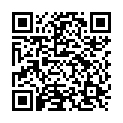|
|
|
| Module code: UI-TRW |
|
|
2S (2 hours per week) |
|
2 |
| Semester: 2 |
| Mandatory course: yes |
Language of instruction:
English/German |
Assessment:
Written exam 120 min.
[updated 01.07.2021]
|
UI-TRW (P251-0043) Environmental Technologies, Bachelor, ASPO 01.10.2021
, semester 2, mandatory course
UI-TRW (P251-0043) Environmental Technologies, Bachelor, ASPO 01.10.2023
, semester 2, mandatory course
UI-TRW (P251-0043) Environmental Technologies, Bachelor, SO 01.10.2025
, semester 2, mandatory course
Suitable for exchange students (learning agreement)
|
30 class hours (= 22.5 clock hours) over a 15-week period.
The total student study time is 60 hours (equivalent to 2 ECTS credits).
There are therefore 37.5 hours available for class preparation and follow-up work and exam preparation.
|
Recommended prerequisites (modules):
UI-BEE Business English for Environmental Engineers
[updated 26.03.2024]
|
Recommended as prerequisite for:
UI-AEJ Applying for an Engineering Job and Professional Presentations
[updated 26.03.2024]
|
Module coordinator:
Dr. Julia Frisch |
Lecturer: Dr. Julia Frisch
[updated 04.08.2023]
|
Learning outcomes:
The modules “Business English for Environmental Engineers” and “Technical Reading and Writing for Environmental Engineers ” should be seen in conjunction with one another. They offer students a framework to further develop their English language skills in a professionally related area from the desired entry level B1 to level B2.
About the “Technical Reading and Writing for Environmental Engineers” module:
Students will have mastered various reading strategies for global and detailed comprehension and will be able to apply these strategies to course-specific texts. They will be able to analyze and summarize these texts. They will also have mastered an extensive repertoire of linguistic structures and will be able to apply this when writing about subject-specific issues, composing texts, and preparing presentations. In doing so, they will be able to decipher information from subject-specific audio and video recordings and process this in written form.
[updated 05.11.2025]
|
Module content:
- Global and detailed comprehension of environmental engineering texts
- Techniques for taking notes
- Summarizing texts
- Describing functions, systems and processes, etc.
- Cause-effect relationships
- Creating subject-specific presentations: structure, layout, and technical vocabulary, strategies for successful presentations
In addition, we will work on:
- Vocabulary
- Repeating relevant grammatical structures
[updated 05.11.2025]
|
Teaching methods/Media:
Learning objectives will be achieved through integrated training of the four basic skills (listening comprehension, reading comprehension, speaking and writing) in relevant communication situations supported by multimedia, as well as the repetition of basic grammar and vocabulary.
Target group-specific teaching/learning materials (print, audio, video), as well as multimedia CALL and e&mLearning materials will be used.
[updated 01.07.2021]
|
Recommended or required reading:
Students will receive a list of recommended teaching and learning materials.
The following materials are free of charge for students of the htw saar. We recommend their use for independent learning:
Susanne Ley, Christine Sick: prep course English
m&eLanguageLearningPortal@CAS (learning offer to help students learn English at the htw saar Alt-Saarbrücken campus, Niveau A1-B1)
Christine Sick, unter Mitarbeit von Miriam Lange (2011): TechnoPlus Englisch 2.0 (Multimediales Sprachlernprogramm für Technisches und Business Englisch, Niveau B1-B2+), EUROKEY.
Christine Sick, unter Mitarbeit von Lisa Rauhoff und Miriam Wedig (seit 2016): Online Extensions zu TechnoPlus Englisch, EUROKEY.
m&eLanguageLearningPortal@CAS
[updated 05.11.2025]
|

